|
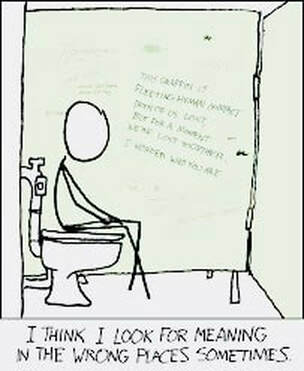 Finding the center of strength within ourselves is in the long run the best contribution we can make to our fellow men- Rollo May I happened to discover Rollo May when I stumbled on a copy of Man's Search for Himself. It is still one my favorite books even though I don't hold much truck with existentialist viewpoints. The only thing I like about existentialism is how some of its proponents offer some good advice on how important it is for people who have fallen or are in the process of falling down in the middle of the four-lane road that leads to nowhere and who are getting ran over daily by fully loaded dump trucks, to find their feet and fight for their humanity. May argues it is all about finding the strength in one's own self. I like that idea a lot. It echoes what a lot of great authors, thinkers and psychologists say. This is very important as the shameless hussies of modern culture (the bought and paid for media) are steadily pounding the idea that collective thinking, the musings of ants and bees, and the architecture of the hive are the way that humans must go. This false morality discourages thinking for yourself and personal development and is the true "crime of the century". I also believe that we must help our neighbors, but if you don't help yourself first, you become the brick that turns back into mud at the first mention of the coming rain. I just can not bring myself to believe that building ant colonies is the true purpose of of our existence on this planet.  "We are so captivated by and entangled in our subjective consciousness that we have forgotten the age-old fact that God speaks chiefly through dreams and visions." Carl Jung I started reading Jung to learn about synchronicity. He was the only one writing about it at one time. I learned a lot from reading about his views of the Collective Subconscious. I do not like those foolish people who would have us believe that things like dreams, visions, intuition, and prophetic insight have absolutely no meaning. Jung was a pioneer, and as we come to grasp more understanding about the workings of the Quantum Universe, the better we will understand his ideas. The thing that sticks out to me about his writings is that its recognition of the religious nature of human beings. Jung kept the spiritual side of things in full perspective during all of his explorations. This will be important later when we have find our way back from the paths though all of the blind alleys we have traveled since Nietzsche proclaimed that we have reasoned God out of existence. People like Jung will be sorely needed when we have to divine for water in the empty desert of post-modern culture. 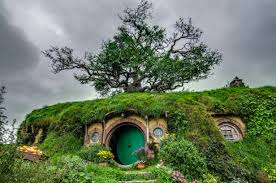 “Change is the end result of all true learning.” ~ Leo Buscaglia I first heard of Leo Buscaglia many years ago back when he was doing his lecture series on PBS. I was a naive young man back in those days and always too busy pursuing pleasure to give an honest listen to what he was saying. I always stopped for a few moments when he came on and listened for a while. It made me feel good knowing that people like Leo were out there pulling for the rest of us. Later in life, I found his book Love at a book sale and was taken by the poetry of his words. I went out and bought a copy for my songwriting daughter thinking it might inspire her. There are several quotes that stick with me. The one mentioned above fits right in with my view that fiction and life are interchangeable. The purpose of a character in a novel is to change; the purpose of existence is to be better at the end than you were starting out. I think that love just happens to be one of, if not the, the main motivating forces in seeking such change. I also like the following quote, "Each person lives love in his limited fashion and does not seem to relate the resultant confusion and loneliness to his or her lack of knowledge about love," as it raises the question why are we humans so illiterate in the language of love. We study everything else, but often acquire our knowledge of love via a series of random events, some joyous and some very painful. With it's preeminent place in the heart and minds of all men and women, why have we been so neglectful in teaching the true meaning of love? 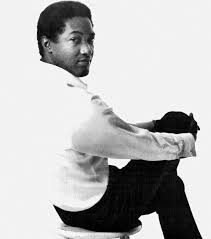 "It's been too hard living, but I'm afraid to die 'Cause I don't know what's up there, beyond the sky It's been a long, a long time coming But I know a change gonna come, oh yes it will" Sam Cooke I have never heard a bad version of this song. I've heard some versions better than others but never a bad one. I think that there is something magical about the structure and the meaning. Cooke believed it too. He was inspired by hearing Bob Dylan's Blowing in the Wind and asked himself why he hadn't written something as meaningful and powerful. He said that it was the easiest song he ever wrote and it was like it was hanging in front of him waiting to be plucked out of the sky. I get chills when I hear I hear this verse. The song was written to help support of the Civil Rights movement, but this verse is universal. It it expresses the anxiety of all people who have suffered or are suffering under the weight that existence places upon them. It is The Brothers Karamazov in four angelic lines. 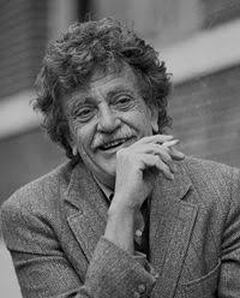 “All moments, past, present and future, always have existed, always will exist.” Kurt Vonnegut I fell in love with Vonnegut after reading Slaughterhouse Five, a semi-autobiographical fantasy based on his surviving the Allied firebombing of the fairy-tale city Dresden, Germany. Vonnegut was a POW and the slaughterhouse referred to in the title was where he was when the bombs fell down. He described it as being in a fairy tale one day and emerging into a Martian landscape the next day. The quote above mirrors the words of Lord Krishna masquerading as a charioteer to Prince Arunja in the Bhagavad Gita as the Prince is wavering on performing his princely duties (which had to be performed, yet would result in the deaths of thousands of his relatives), "The blessed Lord said,'You grieve for those who should not be grieved for; yet you speak wise words. Neither for the dead nor those not dead do the wise grieve. Never was there a time when I did not exist nor you nor these lords of men. Neither will there be a time when we shall not exist; we all exist from now on. As the soul experiences in this body childhood, youth, and old age, so also it acquires another body; the sage in this is not deluded." Vonnegut wrote many of my favorite books when I was younger, like The Breakfast of Champions, Mother Night, The Sirens of Titan, and God Bless You, Mr. Rosewater. I left off following him later though. I felt as he grew older, he grew too bitter. In my eyes, he lost the whimsy, the ability to see all of the suffering, lunacy, and innocence betrayed and to still see the humor and joy. I later ran across an article that said that he had a very dark side and battled with severe depression. As Scottish singer Al Stewart wrote in his lyrical tribute to Vonnegut's writings, the song Sirens of Titan, "(He) was a victim of a series of accidents, as are we all." |
Categories
All
|
Proudly powered by Weebly
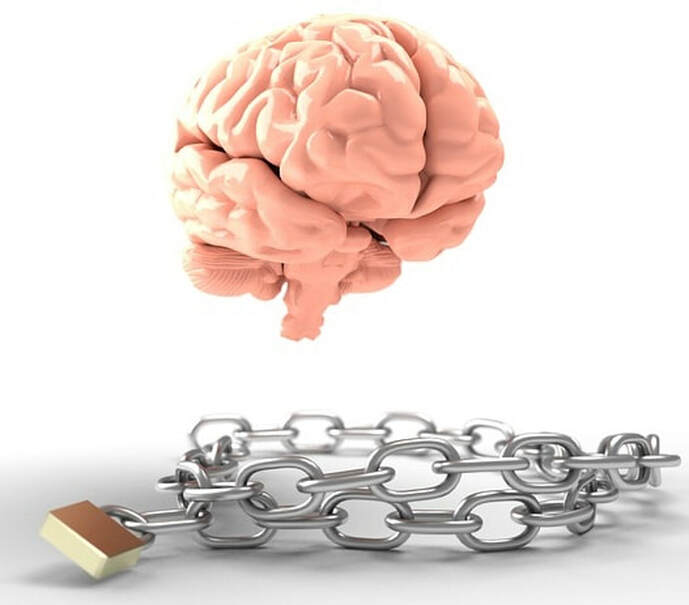
 RSS Feed
RSS Feed